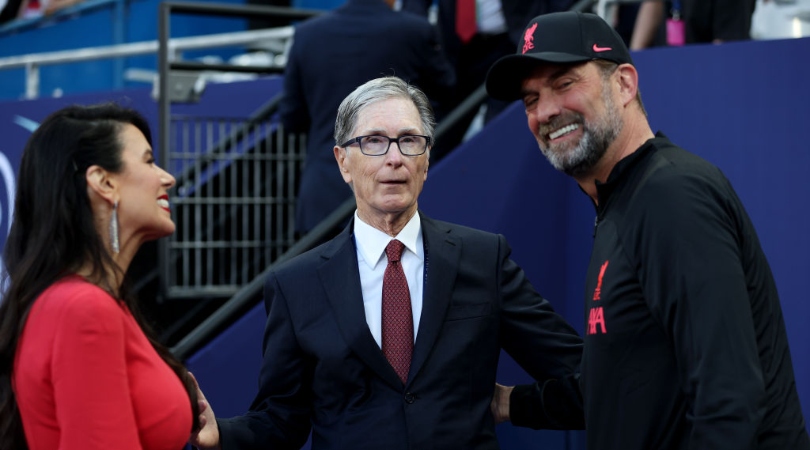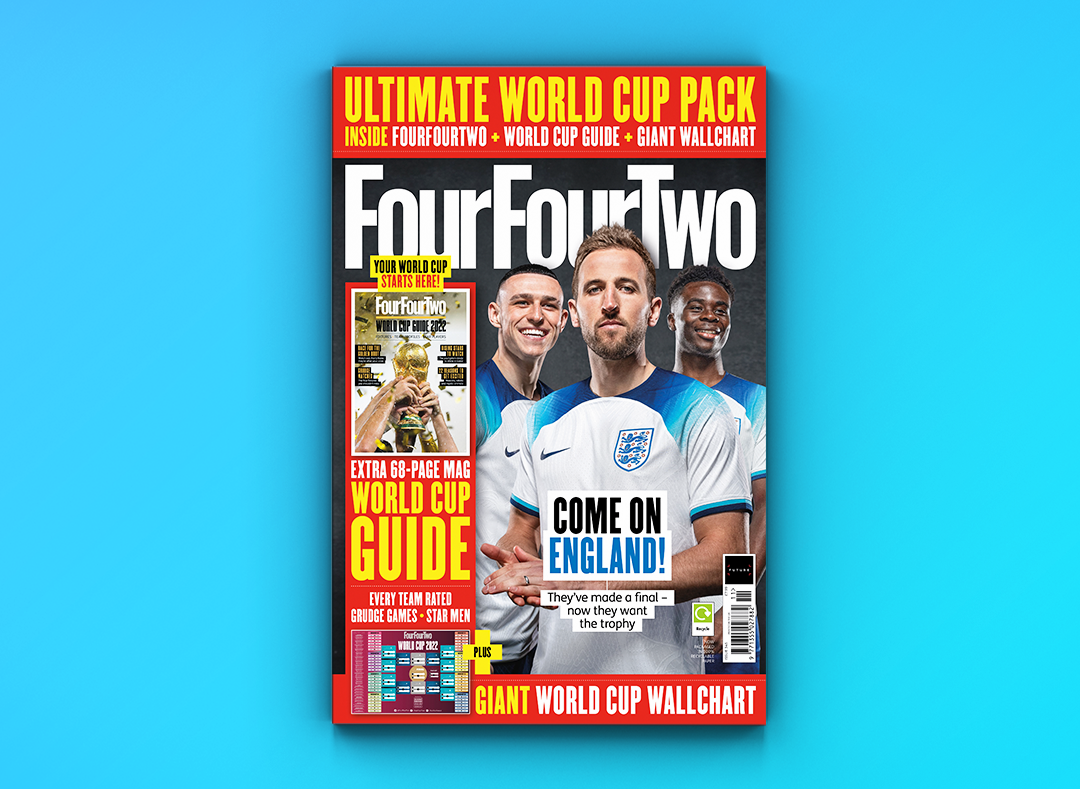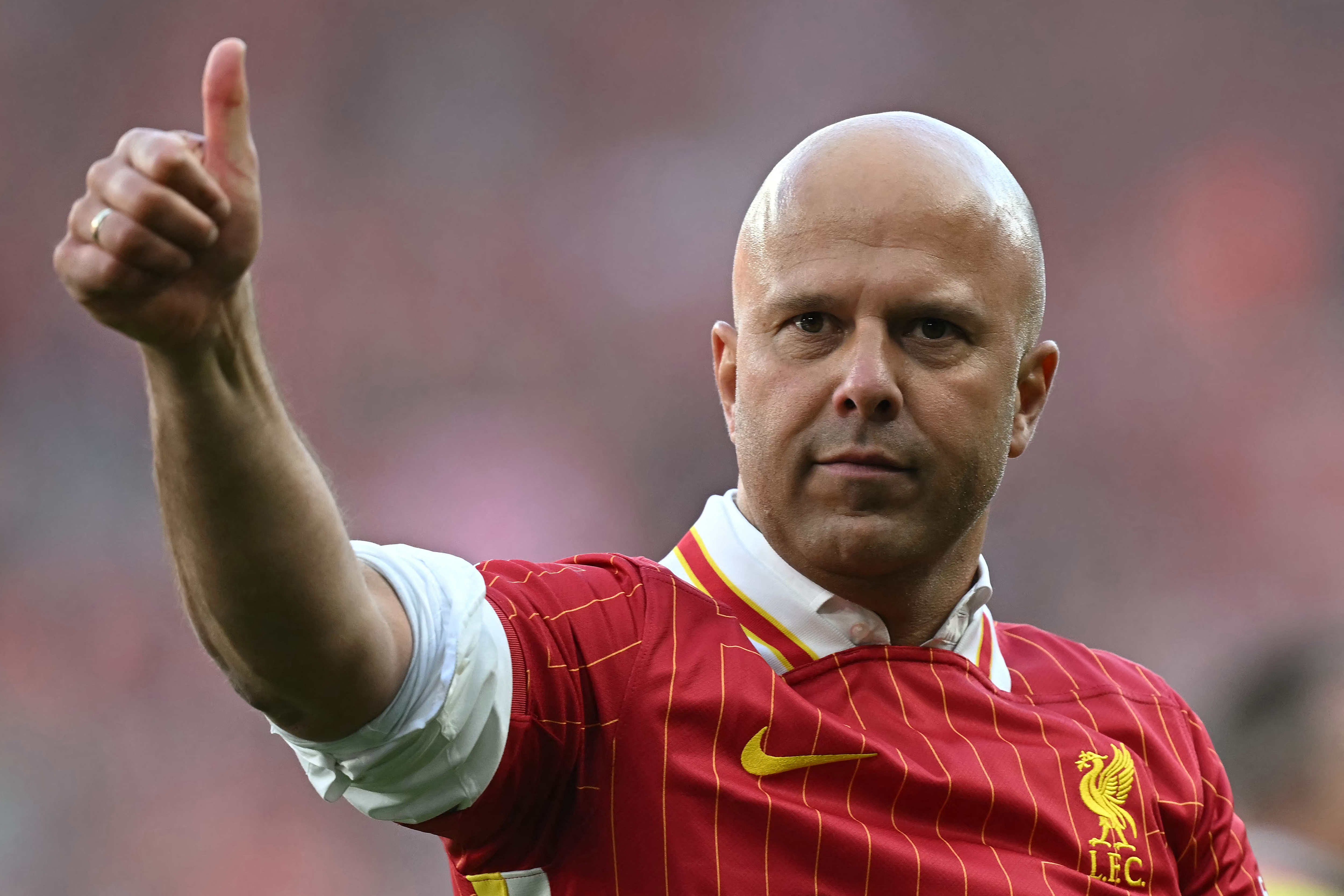Why FSG are looking to sell Liverpool now – key reasons and why it makes sense for them
Liverpool's owners have committed to a 'moneyball'-style approach – but does that make sense when rivals are state-owned?

It was news that arrived completely out of the blue, shortly after Monday’s Champions League draw; Liverpool’s owners Fenway Sports Group were open to selling the club.
While FSG’s public statement in response to the reporter who first broke the news, David Ornstein of The Athletic, doesn’t outright say as much, effectively, the most successful club in English football history is ‘for sale.’
So why now? This wasn’t a reaction to being drawn with the team they’ve lost two Champions League finals against in the last four years, it is due to a series of things that have happened - and not happened - in recent years.
When FSG, then known as New England Sports Ventures, purchased Liverpool in 2010, principal owner John W. Henry did so on the understanding that Financial Fair Play regulations would mean that by being business savvy and with smart investment, they would be able to compete and put Liverpool back among Europe’s elite.
Hence, the early adoption of the so-called ‘moneyball’ approach and investment in a very strong transfer team and analytics department. Such moves that, eventually, reaped their rewards with signings like Philippe Coutinho, Sadio Mane, Roberto Firmino, Mo Salah, Alisson, Gini Wijnaldum and plenty more.

But as the years passed, Henry has watched on as FFP has failed to be implemented by either UEFA or the Premier League, football’s authorities instead turning a blind eye to financial irregularities.
FSG always insisted that their plan was that Liverpool would be self-sustaining. Even works such as the expansion of Anfield were funded by loans from the owners to the club. Despite social media narratives, FSG don’t take money out of the club, Liverpool FC finances itself.
Get FourFourTwo Newsletter
The best features, fun and footballing quizzes, straight to your inbox every week.
With FFP ineffective, Henry sought, along with others, to find parity via the European Super League, with the original statement from Liverpool FC that confirmed that they had agreed to join the ESL, stating how “the competition will be built on a sustainable financial foundation with all Founder Clubs signing up to a spending framework.”
Shortly after the collapse of the Super League, La Liga president Javier Tebas spoke of ”state-owned clubs like Man City and PSG - these clubs need to face some controls.” Words that aren’t too dissimilar to Jurgen Klopp’s recent comments about Liverpool being unable to compete with three clubs, with PSG and Man City now being joined by Saudi Arabia-backed Newcastle United.
Barcelona’s CEO said similar this year, claiming: ”For us the Super League was about creating a more attractive competition oriented around the issue of FFP.”
Alas, the Super League may have had stricter financial regulations than UEFA or the Premier League, but that didn’t stop Jurgen Klopp being among those to speak out against the plans. Eventually, Henry fielded an apology video, saying: “Our work isn’t done. And I hope you’ll understand that even when we make mistakes, we’re trying to work in your club’s best interests.”
Eighteen months on from that, Henry is open to selling the club. And really, who could blame him. Football’s authorities have failed those clubs not backed by oil nations.
The timing of a move to sell the club makes sense for a number of reasons, with the realisation of what it would take to keep up financially with the oil-rich trio.
And that’s where there’s some history repeating itself.
When David Moores sold Liverpool in 2007, he did so with an acceptance that he could not finance the club to keep up with the spending power of Chelsea under Roman Abramovich.
“The Abramovich era was upon us, and I knew that I could never compete,” wrote Moores three years after the sale.
He sold the club in an attempt to allow them to compete.
And now, 15 years on, FSG, while not with the same love of the club that Moores and his family had, are effectively in the same position.
Liverpool under FSG cannot compete with City, PSG and Newcastle, not without being absolutely perfect anyway - something the Reds achieved for a short while thanks to their recruitment team and Klopp’s coaching.
But you cannot be perfect every week, every season, on every transfer and every decision. It’s not possible, but that’s what is required to compete with the resources Liverpool are up against.
Klopp recently said: “I heard now that someone at Newcastle said ‘there’s no ceiling for this club’. Yeah, right! He’s absolutely right, there’s no ceiling for Newcastle. Congratulations, some other clubs have ceilings.”
Liverpool know what their ceiling is. Realistically, it’s only a matter of time before City and Newcastle become de facto members of the top four, leaving Liverpool competing with Man United, Arsenal, Chelsea and Tottenham for the other places.
So with FFP dead, the Super League not a solution, plus the fee Chelsea achieved for their sale of the club and Anfield’s expansion to 61,000 almost complete, you can see why it makes sense for FSG to sell their asset.
FSG have massively improved Liverpool FC, more than most supporters realise, significantly with the Anfield expansion and the new training ground.
Of course, they aren’t without faults, and have recently appeared risk averse in the transfer market, with even Klopp agitating as much earlier this summer, saying: “Let me say it like this; from time to time I would be ready to risk a bit more. But, how I said, I don’t decide that. It’s fine.”
But how do you compete without being backed by a similarly oil-rich nation? Liverpool are arguably seeking a fantasy investor, as former chairman Moores later said of his sale of the club:
“We wanted that fantasy investor — the infinitely wealthy, Liverpool-loving individual or family with the wherewithal to transform our dreams into reality. We invested huge sums and massive amounts of time investigating potential investors, only to conclude that they were not the right people for Liverpool.”
And that’s an even more difficult find in 2022 than it was in 2004, that’s for certain. Quite where Liverpool and FSG can find that fantasy investor now, time will tell.
Matt Ladson is the co-founder and editor of This Is Anfield, the independent Liverpool news and comment website, and covers all areas of the Reds for FourFourTwo – including transfer analysis, interviews, title wins and European trophies. As well as writing about Liverpool for FourFourTwo he also contributes to other titles including Yahoo and Bleacher Report. He is a lifelong fan of the Reds.
